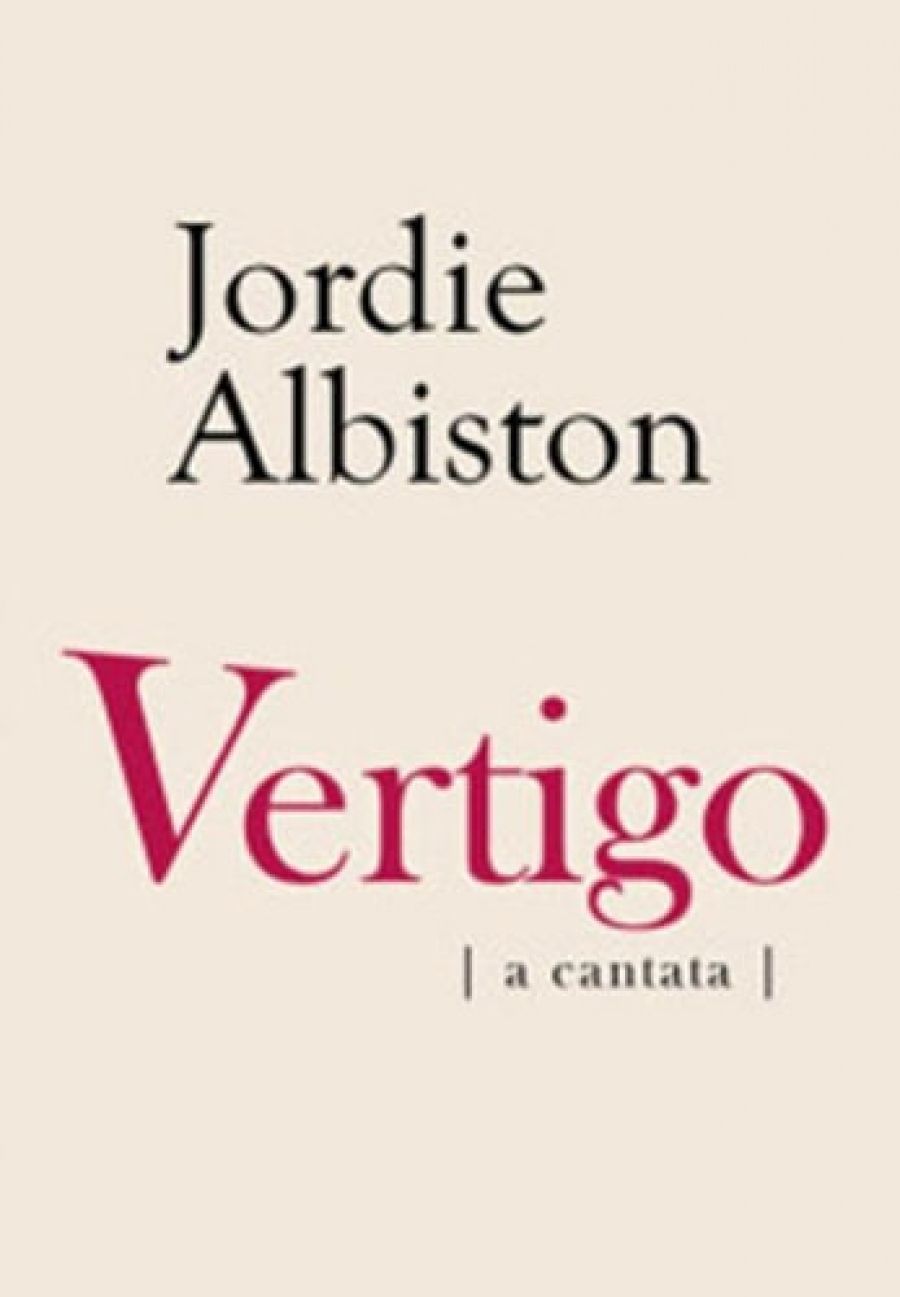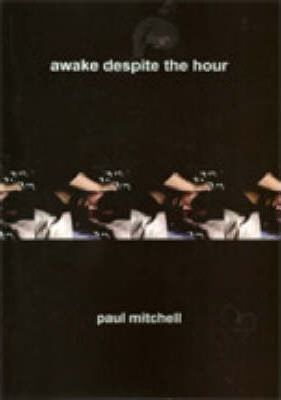
- Free Article: No
- Contents Category: Poetry
- Review Article: Yes
- Online Only: No
- Custom Highlight Text:
Reading Paul Mitchell’s second book of poems during a bout of insomnia seemed apposite not only because of its title but also because Mitchell’s poetry occupies a strange middle place, somewhere between dream and reality. Awake Despite the Hour illustrates Mitchell’s interest in occupying both the ‘real’ (politics, family and the quotidian) and the extramundane (imagination, the surreal and the metaphysical).
- Book 1 Title: Vertigo
- Book 1 Subtitle: A Cantata
- Book 1 Biblio: John Leonard Press, $23.95 pb, 51 pp, 9780977578757
- Book 2 Title: Awake Despite the Hour
- Book 2 Biblio: Five Islands Press, $21.95 pb, 70 pp, 9780734036940
- Book 2 Cover Small (400 x 600):

- Book 2 Cover (800 x 1200):

- Book 2 Cover Path (no longer required): images/9780734036940.jpg
A mix of the everyday and the surreal or metaphysical is present in almost every poem. In ‘The Devices We are Left To’, household appliances are ‘Known to wander at night’ and ‘gather beneath the passionfruit vine’. In ‘Gone Wonderland’, ‘Boats sail into the harbour with masts at half-mast’. In ‘Lyrics for at Least One Love Song’, Mitchell rearranges the world through sheer verbal play: ‘After driving most of the day, / you give up trafficking in society / and decide there are better ways / to make a loving.’
Mitchell’s attraction to puns and other kinds of word play is consistent with a kind of jokiness found in some of his poems’ titles (such as the ‘How Many Light Bulbs Does it Take’). Such humour is in turn consistent with Mitchell’s penchant for satire. In ‘Contact’ and ‘Character Actor’, this satirical bent is directed towards social, rather than explicitly political, phenomena. ‘Contact’ rehearses, perhaps too closely for real comic effect, the ‘Did you get my e-mail?’ conversation that can be heard around the country.
In poems such as ‘Screen Print Activist’, ‘American Might’, and ‘ID’, the satire has a more overtly political target. Here, too, Mitchell is at his most effective when inflecting the world through surrealism. In ‘American Might’, for instance, ‘our movies are aircraft hangars / for favourite flying dreams’. In ‘ID’, an American flag is ‘lining the insides of all coffins’. ‘Screen Print Activist’, by contrast, is more direct and apostrophises, to little effect, the famous image of Che Guevara that graces the T-shirts of countless faux activists.
Mitchell’s satirical and political interests show that he is a poet of engagement. Ultimately, though, Mitchell’s project is extra-political, seeking to engage with the world through a spirituality that may, or may not, be conventionally religious. In poems such as ‘Prayer’, Mitchell seeks a language for the inexpressible: ‘There is no answer / to my breathing, but I hear / the flutter of a bird’s wing, / the curl of a cloud through air. / This is as close as I come.’ Religious imagery could be perceived in the bird’s wing or the cloud, but this is a poetry of approaches, rather than of the predetermined.
This condition is seen most obviously in the collection’s eponymous poem. ‘Awake, Despite the Hour’ is ‘after Kevin Hart’, and one can sense Hart’s own negative spirituality in the poet’s prayer to something or someone unnamed – ‘Please come to me’. The poem marks a moving and powerful end to the collection. For me, not all of the poems in Awake Despite the Hour are this successful, but Mitchell is clearly a poet who has developed a recognisable voice.
Having read Mitchell before sunrise, it seemed appropriate that I should turn to Jordie Albiston’s Vertigo: A Cantata just as the birds began to sing. Vertigo is Albiston’s fifth book of poems, and the refrains and chain structures found in her previous superb collection, The Fall (2003), have been transformed into an even more explicitly musical mode. The work is structured like a ‘Cantata’ in its interleaving of ‘Arias’ and ‘Recitatives’. In addition, the lines are ‘barred’, with some phrases having musical repeat signs. For instance, ‘||: that is what she believed :||’.
Such a musical conceit could have been precious, but Albiston realises her project with absolute authority. Described by the blurb as telling ‘the progress of grief for a lost love’, Vertigo occupies the paradoxical space that powerful writing often does. It authoritatively images the loss of power; it evokes romance while seeking realist effects; it seeks the universal through the individual. In particular, it finds a way of expressing the most powerful of emotions through the most restrictive of forms.
The collection also works because of its lack of solemnity. There is much humour here, such as in ‘Dolente’ when the poet affirms that she belongs ‘to the Cloud Appreciation Society’, or in ‘Andante’, when she calls out ‘Hey Mum! Hey Mum look at me! No man!’. The more dolorous moments are in turn achieved with wit: ‘I cook half a / meal and have none of it none of it // eat myself up with regret.’ In ‘Azzuro’, Albiston shows her skill in catalogue verse, listing various evocative things (‘one type of / grass | another of blood’) to illustrate her ‘blue’ condition.
As one would expect with a ‘musical’ work such as this, Vertigo is also structured through the elegant use of motifs: clouds, the sea, music, poetry and repeated phrases. The work is also richly intertextual, another method that drives the poetry away from conventional ‘confessional verse’. Vertigo evokes romance genres – the fairy tale, gothic – as well as myth and the Bible to illustrate the irony of the failure of romance in the real world. In ‘Attaco’, the lover is urged to defend his ‘sea queen’ from the attacks of the world.
Cry out your war-
cry throw handfuls of love in their
envious eyes! | you must fight for
our home or your sea queen will
die | and you will be left all alone ||
Through the use of genre, exclamation marks, the vocative ‘O’ (as in ‘o swift and perfect symmetry!’) and hyperbole generally, Albiston transmutes pain into a kind of theatre. This is appropriate, since a cantata is a kind of musical theatre. If the self in pain could be conceived of as a kind of theatre (as we have here), then a cantata may be as real as any ‘true confession’.
All of this calls to mind a surprising analogy: Kate Bush (especially her 1985 album, Hounds of Love). Like Bush, Albiston is willing to be original to the point of eccentricity. Like Bush, too, she appears to belong to a group of one. They both take chances, but do so with a full knowledge of (and vigorous attitude towards) ‘tradition’. (In ‘Religioso’, for instance, Albiston joins a small group of canonical poets who have written anti-sacred poems about Sunday). In particular, Albiston and Bush both see the (often ironic) relationship between the language of romance and female identity.
To emphasise the non-confessional nature of the work, the last section of Vertigo is made up of choruses spoken in the first-person plural, in which the particular experiences of the poet become the universal experienes of ‘us’. The arc of the work is, appropriately for a musical work, partly circular, but it is also – as seen in the choruses, with their emphasis on praise and biblical analogues – a kind of redemption. But as the extraordinary final lines of ‘Finale’ show, this process is not facile, but hard-won, ‘sung down the dark / years’.
Vertigo, published by the excellent John Leonard Press, is both a beautiful work and a beautiful book. It is not a long work, at fifty pages, but it would be redundant to expect more. If she hasn’t already, Jordie Albiston has shown herself to be a poet of the first order.


Comments powered by CComment